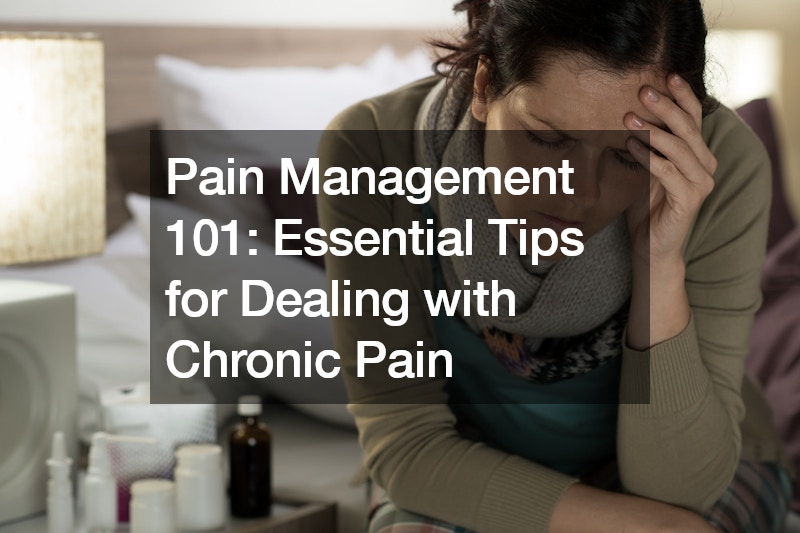

Chronic pain can significantly impact your daily life, making even the simplest tasks seem daunting. While there may not be a one-size-fits-all solution, there are essential tips and strategies that can help you effectively manage chronic pain and improve your quality of life. Let’s explore some key techniques recommended by experts:
1. Eat Well and Get Enough Sleep: Your diet and sleep habits play a crucial role in managing chronic pain. Opt for nutritious meals and stay hydrated by drinking water instead of sugary beverages.
Establishing a regular sleep routine can also promote better rest, which is essential for pain management.
2. Change the Way You Think About Pain: It’s essential to understand that chronic pain is complex and often not solely linked to tissue damage. By reframing your thoughts about pain and focusing on positive coping mechanisms, such as relaxation techniques and mindfulness, you can effectively manage your symptoms.
3. Stay Active and Pace Yourself: While it may seem counterintuitive, staying active can help reduce pain and stiffness associated with chronic conditions. Incorporate low-impact exercises like walking, swimming, and gentle stretching into your daily routine. Remember to pace yourself and avoid overexertion.
4. Distract Yourself and Practice Mindfulness: Engaging in activities you enjoy can serve as a welcome distraction from chronic pain. Consider taking up hobbies or practicing mindfulness techniques to shift your focus away from discomfort and reduce stress levels.
5. Reduce Stress by Learning to Relax: Stress can exacerbate chronic pain, so it’s essential to find ways to relax and unwind. Identify stressors in your life and develop relaxation techniques that work for you, such as deep breathing exercises, meditation, or spending time in nature.
6. Try Massage Therapy: Massage therapy has been found to be therapeutic for relieving muscle tension and reducing pain in individuals with chronic conditions. Consider incorporating regular massages into your pain management regimen to experience the benefits.
7. Use Medication for Acute Pain and Flare-Ups: While medication may not provide long-term relief for chronic pain, it can be beneficial during acute flare-ups. Work with your healthcare provider to identify suitable pain relief medications and use them as directed.
8. Develop Your Support Network: Surround yourself with supportive friends and family members who understand your condition and can provide emotional support. Consider joining a support group or seeking professional counseling to connect with others facing similar challenges.
9. Attend a Pain Self-Management Program: Participating in a pain self-management program can provide valuable tools and resources for coping with chronic pain. These programs often include education, peer support, and practical strategies for managing symptoms.
10. Seek Counseling: Counseling or therapy can be beneficial for individuals struggling to cope with chronic pain. A trained therapist can help you develop coping mechanisms, address underlying emotional issues, and improve your overall well-being.
Importance of Stress Management in Pain Relief
Stress can significantly exacerbate chronic pain, making it crucial to manage stress effectively as part of pain relief strategies. When stressed, the body releases cortisol, known as the stress hormone, which can heighten pain perception and inflammation levels. Moreover, stress often leads to muscle tension, worsening existing pain conditions like tension headaches or back pain.
Effective stress management techniques can help alleviate both physical and psychological distress associated with chronic pain. Practices such as deep breathing exercises, meditation, yoga, and progressive muscle relaxation can promote relaxation, reduce muscle tension, and alleviate pain symptoms.
The Role of Exercise in Pain Management
Exercise plays a pivotal role in managing chronic pain by enhancing muscle strength, flexibility, and endurance. It contributes to reducing inflammation, a common source of pain in conditions like arthritis. Low-impact activities such as walking, swimming, and cycling are gentle on the joints and can be particularly beneficial for individuals dealing with persistent pain. Engaging in regular physical activity triggers the release of endorphins, natural chemicals in the body that act as pain relievers and mood enhancers, thereby diminishing the perception of pain.
Moreover, exercises targeting muscle strengthening provide better support and stability to the affected area, alleviating discomfort. Flexibility exercises, like stretching, aid in improving range of motion and reducing stiffness, contributing to pain relief. Aerobic exercises boost blood flow and oxygenation to tissues, fostering healing and reducing pain. It’s crucial to start with manageable activities and gradually increase intensity and duration to prevent worsening of pain. Consistently integrating exercise into daily routines is key to long-term pain management and overall well-being.
Remember, managing chronic pain is a journey, and it may require a combination of strategies tailored to your individual needs. Don’t hesitate to explore various pain management techniques and seek professional guidance when needed. With persistence and dedication, you can effectively manage chronic pain and regain control of your life.
For those who may find it challenging to access conventional pain management services, consider exploring home services that bring relief and support directly to your doorstep. These services may include physical therapy, massage therapy, or counseling sessions conducted in the comfort of your home.
By incorporating these essential tips into your daily routine and seeking support from healthcare professionals and loved ones, you can take proactive steps toward managing chronic pain and improving your overall quality of life.
.



